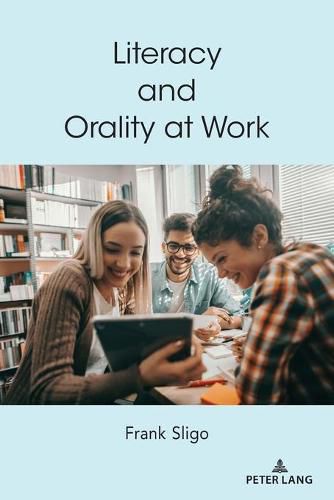Readings Newsletter
Become a Readings Member to make your shopping experience even easier.
Sign in or sign up for free!
You’re not far away from qualifying for FREE standard shipping within Australia
You’ve qualified for FREE standard shipping within Australia
The cart is loading…






This title is printed to order. This book may have been self-published. If so, we cannot guarantee the quality of the content. In the main most books will have gone through the editing process however some may not. We therefore suggest that you be aware of this before ordering this book. If in doubt check either the author or publisher’s details as we are unable to accept any returns unless they are faulty. Please contact us if you have any questions.
Adults’ literacy is a topic of great interest to multiple audiences and scholarly fields but research into it is fragmented across disparate disciplines and hence lacks coherence. In particular, an impasse exists between cognitive science researchers and economists on the one hand, and critical theorists writing in the social practice tradition. This book acknowledges the importance of these fields, then builds on them and on other scholarly traditions by locating its discussion of literacy and orality within a media ecology framework. Based on in-depth interviews within successive literacy research projects in industry and community settings with trade apprentices, their supervisors and managers, industry training coordinators, literacy tutors, and adults of liminal (threshold) literacy, this book reveals the importance of oral-experiential ways of learning, knowing and communicating that exist in complex relationships with literate practices. The tradition of media ecology as exemplified in the writings of Walter Ong, Harold Innis, Marshall McLuhan, Michel de Certeau, Eric Havelock and a collection of contemporary scholars, provides new insights into literacy and orality. The book in exploring the everyday workplace and community environments of adults with liminal literacy demonstrates how a media ecology perspective allows adult literacy and orality to be reimagined within a deeper and more holistic way than possible within disconnected disciplinary areas.
$9.00 standard shipping within Australia
FREE standard shipping within Australia for orders over $100.00
Express & International shipping calculated at checkout
This title is printed to order. This book may have been self-published. If so, we cannot guarantee the quality of the content. In the main most books will have gone through the editing process however some may not. We therefore suggest that you be aware of this before ordering this book. If in doubt check either the author or publisher’s details as we are unable to accept any returns unless they are faulty. Please contact us if you have any questions.
Adults’ literacy is a topic of great interest to multiple audiences and scholarly fields but research into it is fragmented across disparate disciplines and hence lacks coherence. In particular, an impasse exists between cognitive science researchers and economists on the one hand, and critical theorists writing in the social practice tradition. This book acknowledges the importance of these fields, then builds on them and on other scholarly traditions by locating its discussion of literacy and orality within a media ecology framework. Based on in-depth interviews within successive literacy research projects in industry and community settings with trade apprentices, their supervisors and managers, industry training coordinators, literacy tutors, and adults of liminal (threshold) literacy, this book reveals the importance of oral-experiential ways of learning, knowing and communicating that exist in complex relationships with literate practices. The tradition of media ecology as exemplified in the writings of Walter Ong, Harold Innis, Marshall McLuhan, Michel de Certeau, Eric Havelock and a collection of contemporary scholars, provides new insights into literacy and orality. The book in exploring the everyday workplace and community environments of adults with liminal literacy demonstrates how a media ecology perspective allows adult literacy and orality to be reimagined within a deeper and more holistic way than possible within disconnected disciplinary areas.